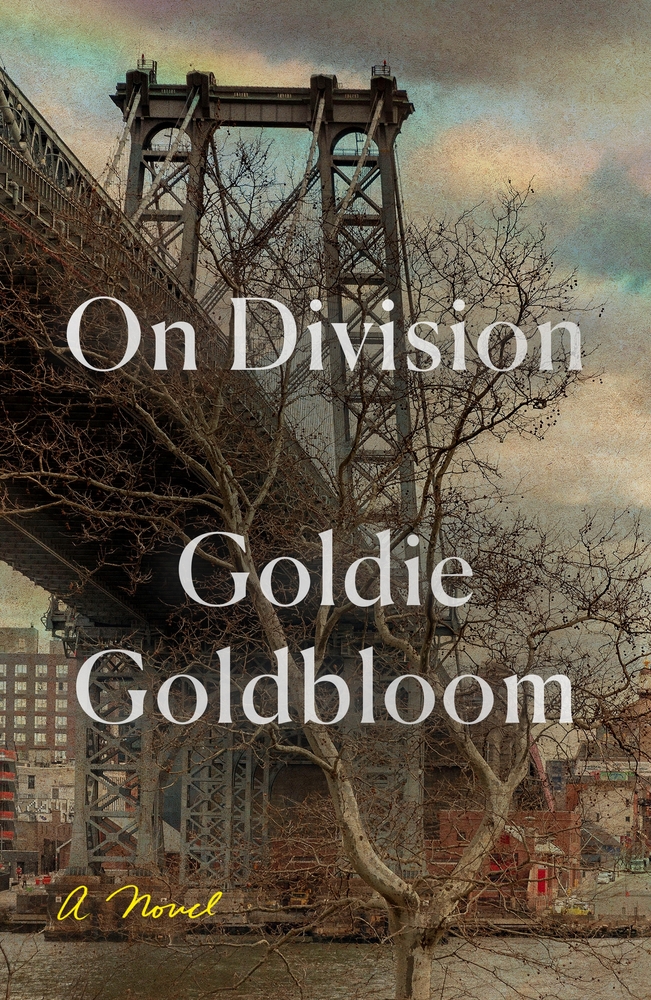Grammar Quirks: Goldie Goldbloom on Sentence Filtering
Goldie Goldbloom, author of “On Division,” discusses the word she made up for pre-rain clouds, using desserts to teach “than vs. then,” and writing for characters who think in a foreign language.
Grammar Girl: What’s your favorite word and why?
Goldie Goldbloom: Awww, don’t make me choose between my babies! Writers shouldn’t play favorites with books or words because favoritism will rise up and bite you in the tender bits. But I’m fond of slang words from other countries and languages. Maybe malarkey isn’t an Irish word, but for the purposes of this response it is. Yiddish is full of the most juicy words and expressions that have made their way over to English. Shlemiel! Guastafesta! Bludger! Malarkey! Those words literally taste good in your mouth when you say them. Try them out. They have far more oomph than, let’s say, idiot, wet blanket, beggar, lies.
Grammar Girl: What’s a word you dislike (either because it’s overused or misused) and why?
Buy Now

Goldie Goldbloom: “Parameters.” “Leverage.” “Influencer.” Shudder of utter and unmitigated horror at what the world of words has become. First there was the “game changer” and then it became the “disruptor.” What was wrong with the perfectly humble and honest “good idea”?
Grammar Girl: What word will you always misspell?
Goldie Goldbloom: When I have to use the word “accommodate,” I cringe. I type it in. The red line thingy tells me I have it wrong. I retype it differently. It’s still wrong. I erase it and write “make comfortable” instead. And then, being Australian but having lived in America for a long time, my spelling is all messed up anyway. Jeweler? One L or two? Neighbour? A U or not? This would all be OK if I could settle on one country’s spelling but nah. I’m wrecked.
Grammar Girl: What word (or semblance of a word) would you like to see added to the dictionary? Why?
Goldie Goldbloom: “Swullocky.” It’s in my first book, “The Paperbark Shoe,” and I invented it to describe the way clouds look when they are hanging low and it’s about to rain. I still use it. Every day that goes by, historical words that describe natural phenomena vanish from the lexicon because people don’t spend as much time outside, observing.
Grammar Girl: Any grammar pet peeves we should know about?
Goldie Goldbloom: I caught one of my kids someone I know using “then” and “than” interchangeably the other day. “My mum would rather eat ice cream than chocolate.” I love ice cream. I like to have a chocolate chaser. I eat them both with equal gusto (see my stunning physique). This sentence should really say, “My mum would rather eat ice cream, ‘then’ chocolate.”
Then tells you when (after ice cream).
Than tells you what (I prefer this rather than that).
Grammar Girl: To what extent does grammar play a role in character development and voice?
Goldie Goldbloom: I write about characters who are thinking and/or speaking in a foreign language fairly often, and I’ve given this some thought. In your mother tongue, you are fluent and (usually) grammatically correct. So if I’m “translating” someone’s mother tongue, I write it in perfect English. But if they are speaking in English, I might add one or two very small, hardly noticable markers of a grammar that works differently than English. Nothing major. That feels disrespectful.
Shlemiel! Guastafesta! Bludger! Malarkey! Those words literally taste good in your mouth when you say them.
In my most recent book, “On Division,” I simplified the English dramatically to reflect a limited vocabulary in Yiddish but the grammar is still, for the most part, perfect.
Grammar Girl: Do you have a favorite quote or passage from an author you’d like to share?
Goldie Goldbloom: What’s with all the favouritism? I can’t give you my favourite or there will be a lot of clamouring and cursing from other favourites. But I can give you the first lines by Brigit Pegeen Kelly, in her poem “Song.” I just offered that up to a friend as something I love, so I’ll share it here too.
Listen: there was a goat’s head hanging by ropes in a tree.
All night it hung there and sang. And those who heard it
Felt a hurt in their hearts and thought they were hearing
The song of a night bird.
Grammar Girl: What grammar, wording, or punctuation problem did you struggle with this week?
Goldie Goldbloom: When I write a sentence, I want it to end on the strongest word. But I don’t want to mess with the structure so much that the sentence becomes heavy and clunks along like a beater. I edit and edit until the sentence is crisp and non-redundant and feels like a smooth shot from an arrow that, in the end, hits a target.
I want to pull out all the filtering, because it alienates the reader from the experience. For example, in the first draft of a sentence I might say something like:
“Melanie heard a man’s footsteps outside, walking underneath her window.”
Ugh. That’s an ugly sentence. I assume the reader already knows it’s Melanie who is observing this. So then I can remove that filtering (and some redundancy too) from the sentence:
I edit and edit until the sentence is crisp and non-redundant and feels like a smooth shot from an arrow that, in the end, hits a target.
“A man walked underneath her window.”
That’s crisp. It’s direct. It ends on the strongest word. If I wanted to create a little psychological unease, I could even write:
“Underneath her window walked a man.”
Instead of the focus being on the window, now it’s on the man. Who is this person? Why is he there?
You May Also Like…





